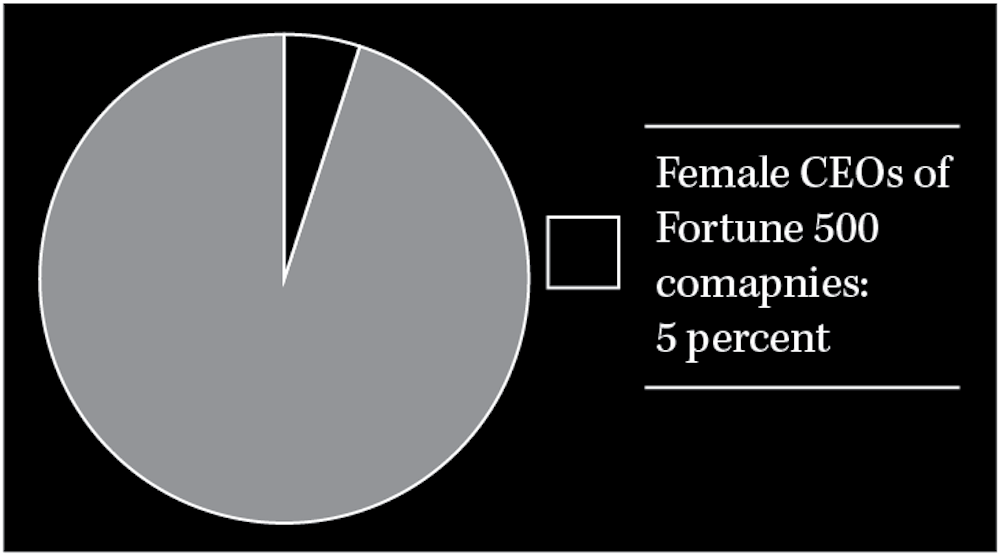By Samantha Petersen | Contributor
As the world continues to diversify, business leaders need to change along with it. For success in today's market, more women need to be in business leadership.
In 2013, 37 percent of women between ages 25 and 29 held bachelor's degrees, compared to 30 percent of men, yet women only occupied 5.6 percent of CEO positions in Fortune 500 companies. The disparagement between these two numbers is unacceptable. By sequestering women outside of leadership roles, we lose invaluable perspectives and ideas that could benefit every organization.
According to a study by the Peterson Institute for International Economics, "there is a positive correlation between the presence of women in corporate leadership and performance 'in a magnitude that is not small.'" Based on research done by Grant Thornton, women in leadership improve their companies culturally and financially.
Businesses are progressing based on their commitment to diversity in all forms. According to Forbes, homogeneous groups make more consensual decisions but are more likely to be wrong due to groupthink. It takes diverse leadership to accurately diagnose and treat problems afflicting a diverse constituency.
Women do not feel valued in today's workforce. Among working men and women ages 16 and over, women's hourly wages were 84 percent of men's in 2012, as reported by the Pew Research Center. The gender pay gap tells women their work is not equally valued with their male counterparts, and subsequently they value themselves less.
The business world often opposes working mothers as well. "Mothers are three times as likely as fathers to say that being a working parent has made it harder for them to advance in their careers, 51 percent versus 16 percent," according to Pew Research Center. The business world makes it difficult for mothers to care for new babies and offers very little paternity leave for fathers, preventing them from helping at home after the birth. Through better maternity and paternity policies, we can partner with families and encourage both parents to participate in leadership roles.
Some say women don't want leadership positions because of natural inclinations. They argue that women would rather be at home with children, where they can use their innate gifts. People also label women as complainers, citing that women have gained prominence in society and should therefore be content where they are. They say there are already women in the marketplace, but these women just don't have what it takes to make it to the top.
While this may be the case for some women, Pew states that 66 percent of women are interested in becoming a boss or top manager. Seventy-five percent of women think changes are "needed to give men and women equality in the workplace," according to an article from 2013. The statistics tell a different story than many popular, old-fashioned views.
As a woman about to enter the workplace, I am encouraged by the statistics reflecting my experience; women and men together help an organization grow much more than if men run it on their own. I want to be part of the next generation of women who stand alongside their male partners to impact the global marketplace. The conversation about women in leadership is pivotal and must be approached with extreme grace and without bitterness. The men have not "done us wrong." On the contrary, I know wonderful men who have stood up for me and encouraged me to lead. However, this is not the case for all women, and times are changing. Women want to be decision makers, and I think it's about time we let them in the room.




